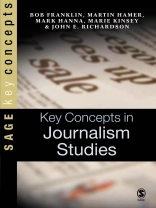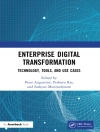′The five authors have drawn on their enormous range of experience in newspaper and broadcast journalism, at national and regional level, as well as their teaching expertise for this book, which will be essential reading for students in journalism, and as invaluable reference tool for their professional careers′
– www.Holdthe Front Page.co.uk
′At long last, the undergraduate journalism A-Z. This is an excellent and much needed resource which should be on the list of every undergraduate journalism and media student′ -Tim Rodgers, Kingston College
The SAGE Key Concepts series provide students with accessible and authoritative knowledge of the essential topics in a variety of disciplines. Cross-referenced throughout, the format encourages critical evaluation through understanding.
Written by experienced and respected academics, the books are indispensable study aids and guides to comprehension.
Key Concepts in Journalism offers:
– a systematic and accessible introduction to the terms, processes and effects of journalism
– a combination of practical considerations with theoretical issues
– further reading suggestions
The authors bring an enormous range of experience in newspaper and broadcast journalism, at national and regional level, as well as their teaching expertise.
This book will be essential reading for students in journalism, and an invaluable reference tool for their professional careers.
विषयसूची
Entry
Absence
Accessibility
Accountability
Accuracy
Adversarial journalism
Advertising
Advertising codes
Advertorial
Agenda setting
Agony aunt
Alternative media
Ambient news
Apologies
April fool
Audience
Audience fragmentation
Audience segmentation
Bad News
Balance
Bandwidth
Bias
Bi-media
Broadcasting
Broadloid
Broadsheet
Calcutt
Cartoons
Censorship
Chequebook journalism
Circulation
Collocation
Columnist
Commercial radio/ILR
Communication
Communication Act 2003
Competition
Contempt of court
Content analysis
Context
Contextualised journalism
Convergence
Conversation analysis
Culturogical approaches
Cyberspace
D notice, DA notice
Decoding
Defamation
De-regulation
De-unionisation
Diary
Digitisation
Discourse
Discourse analysis
Documentary
Dumbing down
Editor
Email
Embargo
Embedded journalist
Ethics (journalism)
Ethnicity
Fairness
Fallacy
Fifth estate
Fillers or ‘COIs’
First Amendment
Fleet Street
Focus Groups
Fourth estate
Framing
Franchise auction
Free newspaper
Freelance
Gallery reporters
Gatekeeper
Glasgow Media Group
Globalisation
Gonzo journalism
Guard dog theory of journalism
Hard news
Hegemony
Hierarchy of influences
Himalayan option
Human Rights Act
Hutton
Hypertext (hypermedia, hyperlink)
Ideology
Ideological state apparatuses
Icon
Impartiality
Independent national radio
Independent producers
Information architecture
Information subsidies
Infotainment
Interactivity
Internet
Intertextuality
Inverted pyramid
Interview
Investigative journalism
Journalism
Journalism education
Journalism studies
Journalism of attachment
Journalist
Lapdog theory of journalism
Libel
Licence fee
Lobby
Local newspaper
Local radio
Macrostructure
Market driven journalism
Mc Donaldization and Mc Journalism
Mass communication
Media
Media effects
Media mogul
Media scrum
Metaphor
Metonym
Minimax programming
Modality
Modern mainstream
Moral panic
Multiculturalism
Multimedia
Myth
Narrative
Narrowcasting/niche broadcasting
National press
New media
New technology
News bunny
News
News agency
News angle
News editor
Newsgathering
News management
News release
Newsroom
News values
Newszak
Obituary
Objectivity
Off the record
fficial Secrets Act
Online advertising
Online journalism
Orientalism
Othering
Ownership
Oxygen of publicity
Photojournalism
Plurality test
Portal
Prejudice
Press baron
Press freedom
Presupposition
Primary definition
Prime Minister′s Press Secretary
Privacy
Producer choice
Producers′ guidelines
Production format roles
Promise of performance
Propaganda
Propaganda model
Proprietorialism
Public access broadcasting
Public interest
Public interest broadcasting
Public interest test
Public journalism
Public relations
Public service broadcasting
Public sphere
Quality threshold
Racism
Radio
Reach/share
Readers′ Editor (Ombudsman)
Readers′ letters
Readership
Reconstruction
Referential strategies
Regulation
Reporter
Representation
Right of reply
Rolling news
Royal Commissions on the press
Scripts
Self-censorship
Self-regulation
Sensationalism
Shovelware
Signification
Silly season
Sketch writers
Soft news
Sources
Spin
Spin doctor
Spoiler
Stereotype
Story
Style
Style guide
Subscription
Tabloid
Target audience
Taxes on Knowledge
Television
Text
Trade press
Transitivity
Two step flow
Two way
Usability
Uses and gratifications
Video journalist
Video news release
Virtual community
Watchdog journalism
Watergate
Weblog
Website
World Wide Web
Yellow Journalism
लेखक के बारे में
My main research interests revolve around social inequalities and language use, and the ways that these interact with and affect each other. I work within a field of research known as Critical Discourse Studies. We argue that because language use contributes to the production and the reproduction of social life, logically, it must play a part in producing and reproducing social inequalities. Critical Discourse Analysts aim to show how this occurs, thereby linking social and linguistic analysis.
I am the Chief Editor of the international peer review journal, Critical Discourse Studies












